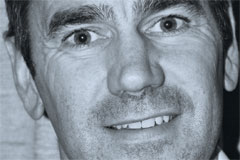More pointless than a dead parrot

I had just had a lengthy conversation with an experienced staff nurse working in a busy nursing home. It was the middle of the night. The patient had fallen, was now back in bed, and the staff wanted to give her some paracetamol.
Which organisation is responsible for making nurses believe they are unable to recognise a dead patient?
‘Before you do that,’ I asked the nurse, ‘are you sure the patient is alive? I mean, can you verify that?’
‘Well of course I can,’ shot back the nurse, ‘she’s obviously alive as she’s talking to me’.
I was immediately relieved, but at the same time slightly confused. This was the same nurse, who only a week previously, had been unable to verify that a patient (who was expected to die) was dead. When I left medical school all patients were either alive, or dead. Excepting some debate over brain stem death which we can probably overlook in a primary care setting, there was no half way house, but this may have changed of course with medical advances being what they are. Do you find it strange that some nurses are unable to verify an expected death, which by extension means that they could be treating patients who could actually be deceased, or not necessarily alive?
Each time I get asked to verify a death by a nurse, usually in the out-of-hours setting, a small part of me fades away. Which organisation is actually responsible for making nurses really believe that they are unable to recognise a dead patient? It truly is a bit Monty Pythonesque – except it relates to humans and not parrots.
‘I haven’t got a certificate,’ is the usual response from nursing colleagues when I ask what prevents them from verifying a death. Well apart from my cycling proficiency badge neither have I that I can lay my hands on, but it is great that the BMA actually have some guidance on this issue.
This states that there is no legal obligation for a GP to attend a deceased patient (unless the death is unexpected). Also, the patient can be declared dead by a relative, member of staff in a nursing home, ambulance personnel or the police according to the guidance. It stops short of recommending the cleaner, postman, or refuse collector but I suspect if they were available they could be called on if necessary. In one of our nursing homes a patient actually has a pet parrot who talks, so it would be great to get its opinion and open up all sorts of possibilities for a Monty Python rerun.
I’ve no doubt that in the over-regulated world that surrounds medical practice now, we will soon all be attending death verification courses, or being asked to prove that we have verified at least five deaths this year (maybe six, or even seven depending which number is plucked by the master of ‘it seems a good idea but there is no evidence’-based protocols at NHS England).
So, as you reflect on each of your morning consultations before diligently adding it to your appraisal folder, remember to ask the all important question: that last patient was alive wasn’t he?
Richard Cook is a GP partner in Hurstpierpoint, West Sussex. You can follow him on Twitter @drmoderate
Pulse October survey
Take our July 2025 survey to potentially win £1.000 worth of tokens




 Oviva’s fully remote Tier 3 Weight Management programme
Oviva’s fully remote Tier 3 Weight Management programme






